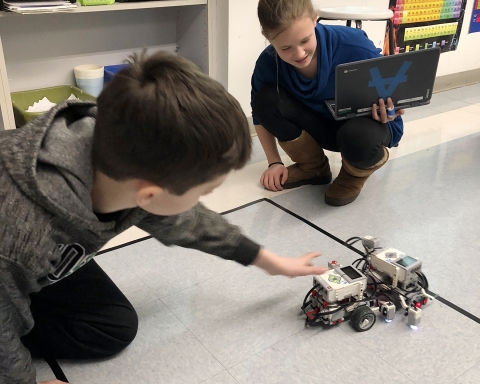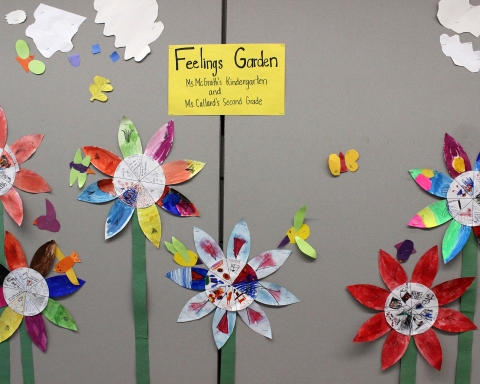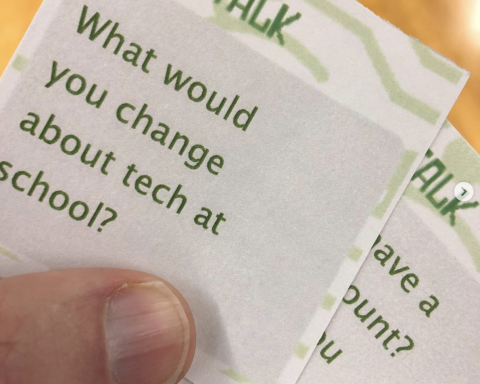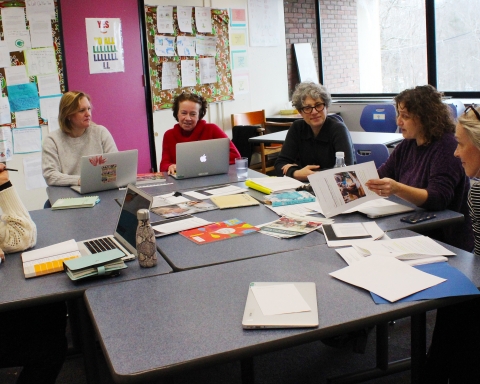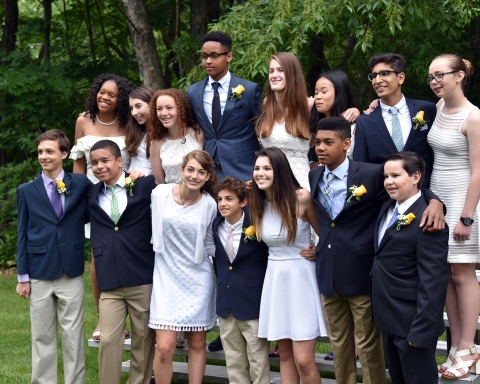Julie Mumford, LICSW, joined the Park staff this fall so that the park community would have access to mental health resources every day of the week. Julie is available for appointments at school on Mondays and Thursdays from 7:30am to 3:30pm, in the office she shares with psychologist Olivia Moorehead-Slaughter. She and Olivia work on different days but meet once a month to compare notes. I sat down with Julie in February and asked as many questions as I could.
Julie earned her Master’s in Social Work at Simmons University, where the curriculum emphasized social justice values and multicultural perspectives. As an intern, she honed her clinical skills in a forensic psychology in-patient unit at Lemuel Shattuck Hospital and then as a child/family outpatient therapist at Boston Children’s Martha Eliot Health Center, both in Jamaica Plain. Julie has always been committed to community mental health.
After completing her degree, Julie took a job at the Home for Little Wanderers, a non-profit family service agency providing integrated programs to Boston’s most at-risk children and young adults. Julie worked for their Preschool Outreach Program for 12 years gaining tremendous hands-on experience in early childhood mental health consultation.
What did you do at the Home for Little Wanderers?
Our Preschool Outreach Program went into different preschools in two different capacities: The first was through a grant to help support children at risk of being expelled from their preschools. We helped the teachers understand the children’s specific needs and develop skills to help keep them in the program. I’m actually still working on this grant.
Secondly, we partnered with Head Start centers as the in-house clinician/consultant for kids in their programs. As you may know, Head Start is a federally funded preschool service provider for low-income families. The Head Start kids had lots of risk factors and tremendous trauma histories. That was a lot of trauma work.
Why did you decide to take the job at Park?
Towards the end of my 12 years at the Home for Little Wanderers, I was doing more management and supervision than direct work with kids and families and teachers. I really wanted to get back to that.
I also wanted to expand my very small private practice into something bigger and being part time at Park allowed me the flexibility to do that. My home office in Westwood is an addition built onto the back of our house with a little waiting room. I see clients ranging from three years old (playing on the floor), to teenagers (sitting in cool chairs with fidgets).
What has been your biggest career milestone?
After becoming a parent, I became much more interested in doing parent work. I underwent an intensive training called Child Parent Psychotherapy (CPP), where you learn to see the relationship between the parent and child as the client. Parent-child interactions will always be a strong interest of mine.
The whole experience of having children was so humbling. I know all parents do the best they can – including me, and I screw up all the time! So, I’m never assessing or judging. I’m always just in it with people. I feel like I connect deeply with parents – not in a way where I have the answers but where I can ask good questions that help get people where they need to go.
What’s the single most important thing you have learned about parenting?
Every child is different. Every parent is different. Parents have to find their own authentic style. They need to figure out what feels good to them. So, rather than telling them what to do or to read a certain book or follow a certain technique or styles, I ask them, “What do you believe in?” They can’t copy what works for me – the answers have to come from them. I know I’m really eclectic. I borrow from everything!
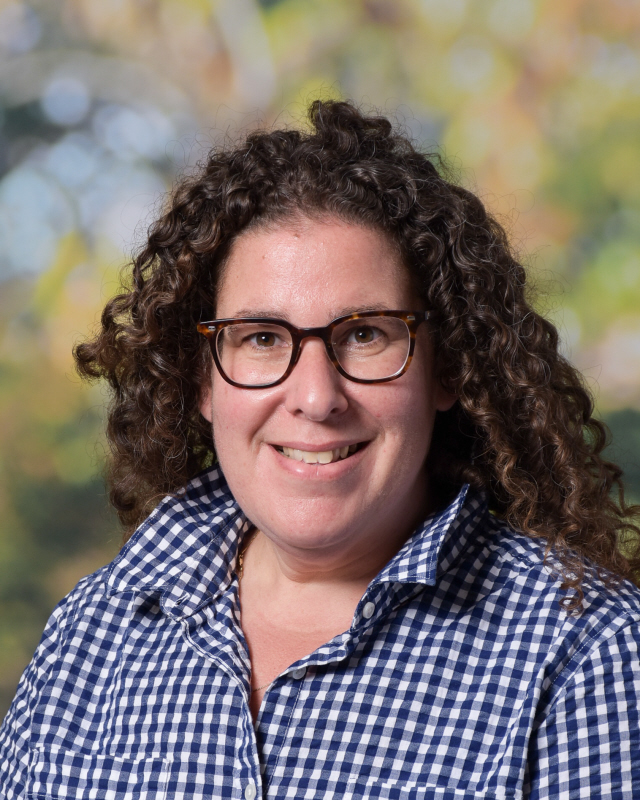
What are your goals here at Park?
First and foremost, my goal is to develop relationships with as many faculty, students and care-givers as I can – particularly with faculty because they’re the ones making referrals and, ultimately, working with the kids all day. Coming from a consultation model, I want to help them see and identify issues and be able to support the students. All teachers crave this type of support.
How are you getting to know the students and faculty?
By jumping in! By responding to every request. By making myself available. Being in the classroom is very important. I’m doing in-class work with a few classrooms right now – supporting kids who are having a hard time and following up with teachers to talk through interventions.
I also have a lunch table, which is huge. I think of that as an intervention, where kids whose parents or teachers want them to get to know me can sit at my lunch table. Kimberly Formisano also sits there on certain days that I’m not there. The lunch table is an amazing way for me to observe and become acquainted with kids.
The fifth grade lunch group is another intervention. A self-selected group of them bring lunch to my office to chat in private about what’s happening in Grade V. Mrs. Leonardelli has been my tech coach! She showed me how to create a survey on a Google form so I could ask questions like: “what’s on your mind? what sort of things stress you out? and, how can I be helpful?” The fifth graders actually requested this lunch group!
I also have a social skills group with a particular Grade I class, where every first grader comes with a group of five classmates for five consecutive weeks. By the end of the year, everyone in the class will have participated.
What do you see as the biggest mental health challenges for students at Park?
According to the kids themselves, the biggest stressor is not having enough time to do everything, or feeling over scheduled with homework and activities. Secondly, it’s challenges with friends.
In addition, and they didn’t report this but it’s my hunch, all kids are pretty uncomfortable talking about things that are hard, so they feel alone. Kids hold a lot inside. They feel like they’re the only ones dealing with XY and Z, when in reality, there are so many other kids in the same boat.
Fun Facts about Julie
- Her husband, Greg, is an artist who teaches at an art-based day program for adults with disabilities called Outside the Lines. “We have two children, a first grade boy named James, who goes to Dexter Southfield, and a 16-month-old named George.”
- She lives in the oldest house in Westwood. “It was built in 1680 and has great energy.”
- She keeps a bowl of butterscotch candy on her desk as a way to invite students into her office. “When I saw that Olivia had candy, I knew I needed to offer something, too!”

